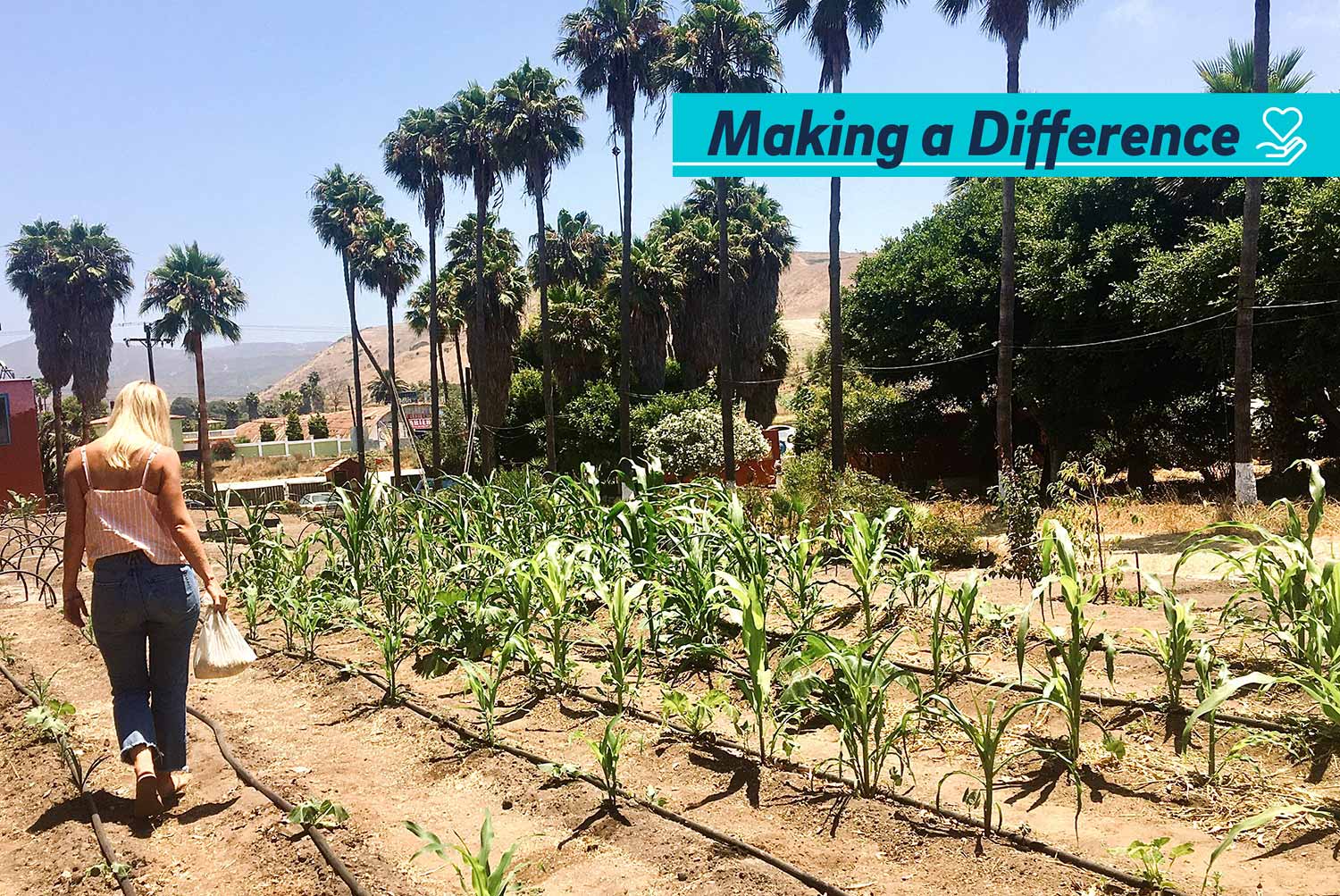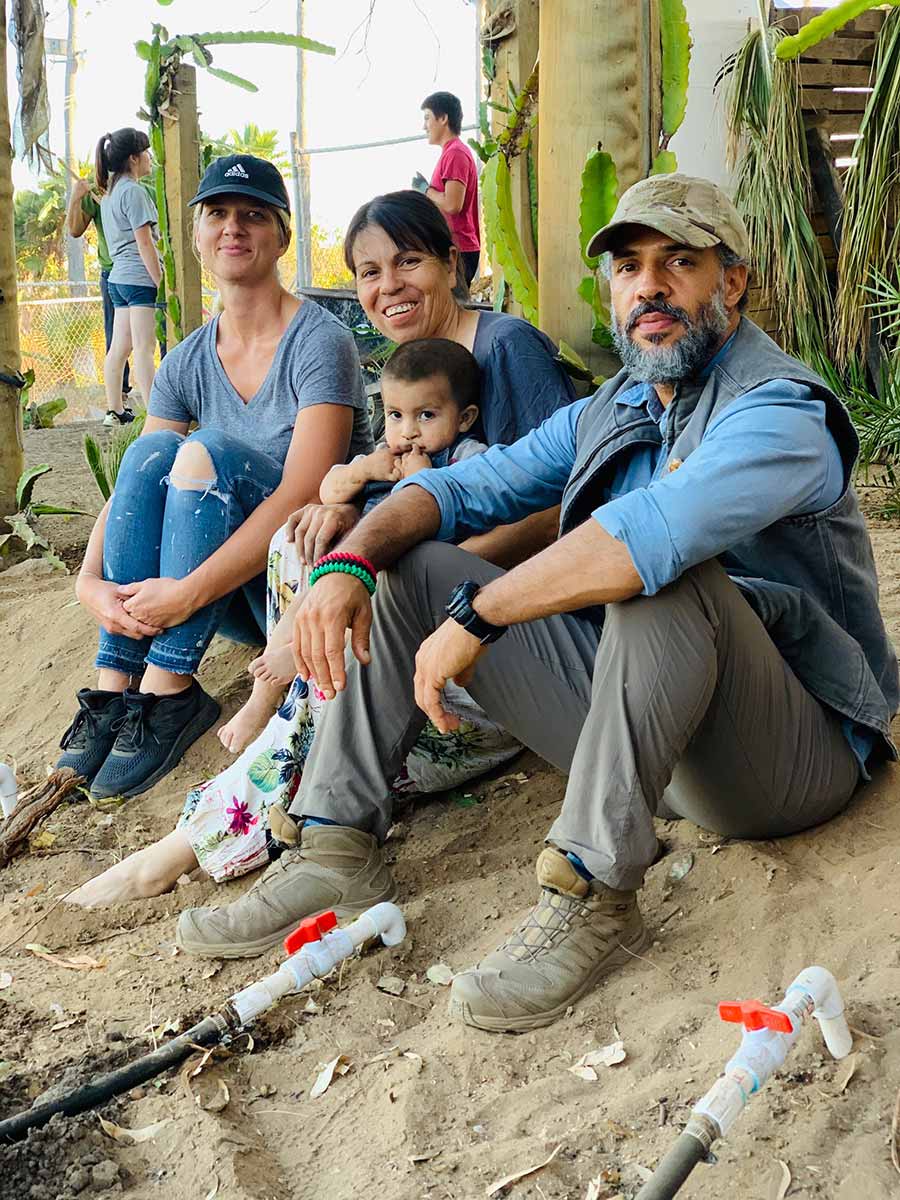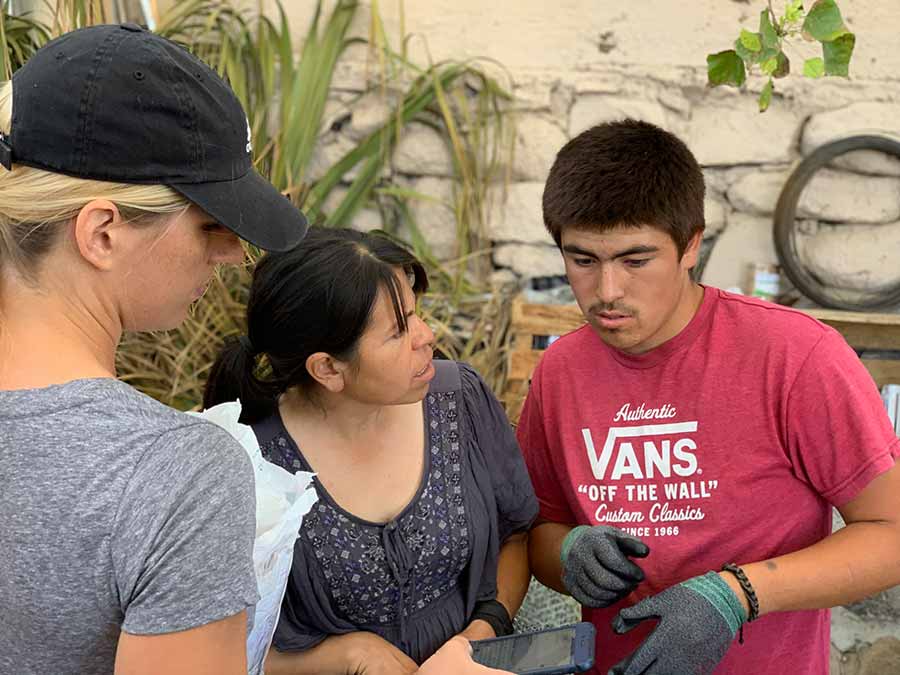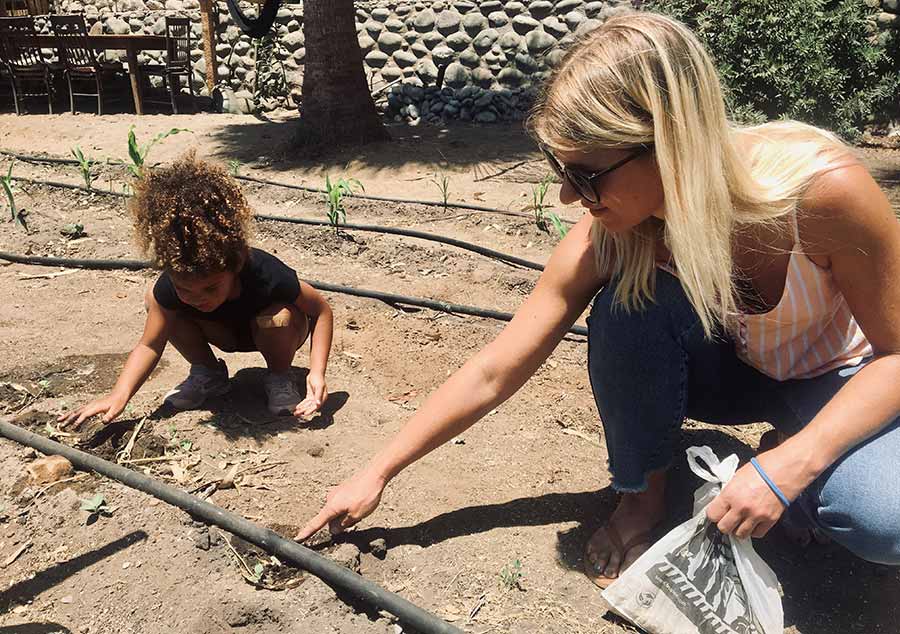By:
- Yadira Galindo
Published Date
By:
- Yadira Galindo
Share This:

After watching her own garden begin to fruit, Brenda Henry was inspired to grow produce and provided it free to families impacted financially by the COVID-19 pandemic.
Sowing Seeds of Compassion During Pandemic
UC San Diego Health nurse helps start farm that will provide free food to community in Mexico hurt by COVID-19
On a small plot of land within a 5-acre ranch in the Mexican community of Primo Tapia, an idea is bearing fruit in the form of tomatoes, plus corn, beans and peppers. A dozen hens lay eggs in a custom-built chicken coop seemingly oblivious to the coveted ocean views or to the chaos resulting from the novel coronavirus pandemic that just three months earlier laid the foundation for Mud and Lotus Farms.
Until the pandemic, times were good. Tourists looking to dine on freshly caught lobster would jockey for a table with the same spectacular views of the Pacific Ocean that the chickens now overlook.

Lety Nuno (center holding her son Max) provides much needed guidance to Brenda Henry (left) and Anas Canon (right) as they launched Mud and Lotus Farms.
South of Rosarito, approximately 30 miles from the border with the United States. Primo Tapia thrives on tourism dollars. But a slow economy and COVID-19 have left residents of this community, and neighboring Baja California cities, without their livelihoods.
“With the start of COVID-19 in the spring, food was very sparse,” said Brenda Henry, an infusion center nurse at Moores Cancer Center at UC San Diego Health. “I watched large numbers of people become suddenly unemployed. Supply chains were disrupted; grocery store aisles were bare; and food banks saw a surge in demand. It made me acutely aware of food scarcity.”
Compassion is rooted in Henry’s nature. She wanted to help. But how?
Anas Canon, a former Apple creative and music producer, moved to Baja California four years ago. He saw neighbors lose their jobs when the pandemic prevented them from crossing the border into San Diego or their employers shuttered their doors.
A longtime friend of Henry, the two collectively reflected on how they might serve their communities desperate for necessities.
“When the border closed I knew it would not be good for the people or the economy,” said Canon. “How are they going to eat and survive? Money is not always the way you solve this kind of problem. The basic struggle of affording food is only going to worsen.”
After talking with Canon, inspiration struck as Henry, who has been gardening and growing food all her life, observed her own backyard garden begin to blossom.
“We as a society are trying to accumulate for ourselves,” said Henry. “I realized I already have enough for myself and my family. It’s time to give back to the community.”
That’s when the idea of Mud and Lotus Farms germinated.
Canon lives on the Baja California ranch. Henry could supply seed money.
Friends and family mentored the duo and helped build infrastructure and provided advice.
“I was going up and down the aisles in the grocery stores here in Baja California to see what is missing from the shelves,” said Canon. “In the states it might be toilet paper and hand sanitizer but here it was corn, a staple in the diet of this community.”
The duo decided to grow staple items: corn, pinto beans, squash, tomatoes and peppers. The produce and fresh eggs will be donated to community members in need including two shelters—one for children and one for homeless elders. They will also distribute food to neighbors.

To help get Mud and Lotus Farms off the ground, Brenda Henry got advice from local permaculture expert Lety Nuno, while her son Abel provided some much need help with infrastructure.
“This will be a long-term project,” said Henry, whose health care experiences tells her that the pandemic will continue to affect the community for months to come.
“Even when the economy recovers, there will always be people in need of help. I know. I have been in a place where I needed a little assistance myself. It’s time to return the favor.”
While Henry works at UC San Diego Health caring for patients undergoing cancer treatment, she visits the farm weekly and provides funding and ideas to help sustain operations. Henry provides the sole financial support, but hopes to develop a crowdsourcing site to support the farm.
Since Canon lives on the property, he is handling the day-to-day management. He admits farming does not come naturally, but he is learning.
Mud and Lotus Farm does not use pesticides or chemicals. They rely upon manure from the horses and goats on the ranch, plus their own chickens for fertilizer. Canon and Henry are planning for the long-term sustainability and the health of the community and the farm.

Brenda Henry visits Mud and Lotus Farms regularly, sometimes bringing her 4-year-old daughter Naya with her to look after progress on the farm.
Should the pandemic persist and in view of the globalization of food supplies, Canon wonders if grocery stores shelves will be empty more frequently as countries reduce crop exports. Will more such community farms be needed?
Those are big thoughts. Right now, Canon is more grounded on smaller issues, namely gophers.
“Gophers are a challenge,” said Canon, laughing. “Every time I see a cornstalk leaning I know a gopher has been eating its roots and I think, ‘That’s one family that won’t eat.’ My mission is to grow and save as much as I can to provide to local families. I feel valuable in this world when contributing to the community, especially in this community where I am a guest.”
Share This:
You May Also Like
Stay in the Know
Keep up with all the latest from UC San Diego. Subscribe to the newsletter today.



